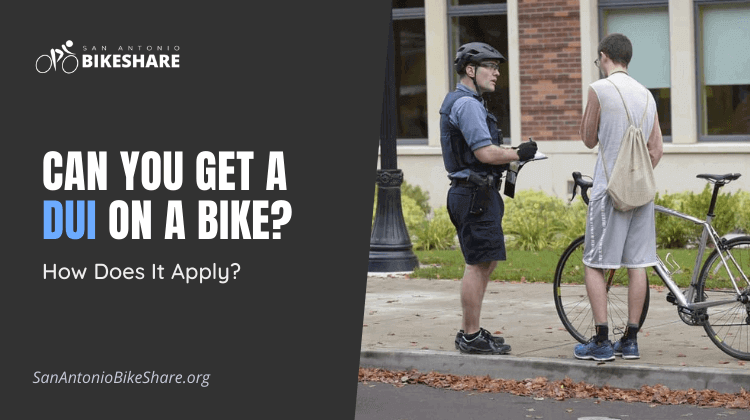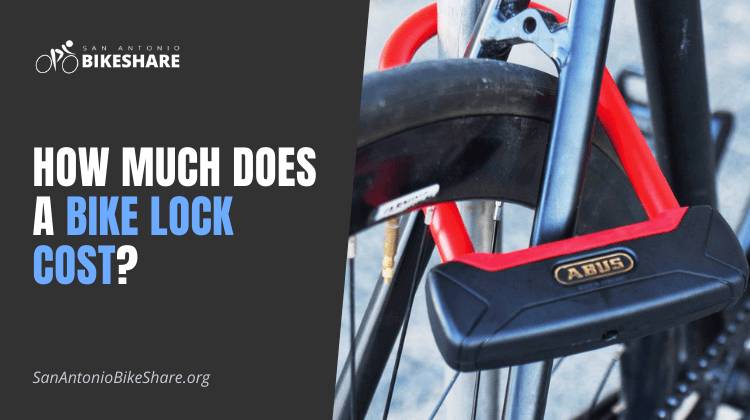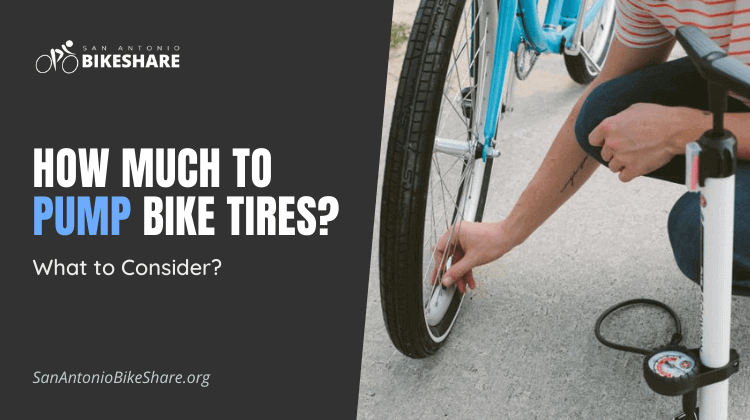Can You Get A DUI On A Bike? How Does It Apply?
Can you get a DUI on a bike? We’re here to answer your question. Let’s start!
You’ve probably heard horror stories of weird events caused by inebriated drivers and the consequences of their actions. Cycling while inebriated (Biking DUI) is just as dangerous and lethal as driving while inebriated, according to many cyclists. Hundreds of injuries are reported each year as a result of inebriated cyclists.
In certain states, riding a bicycle is governed by a particular regulation. Furthermore, a bike is handled almost identically to other types of transportation, depending on how they are characterized.
If you ride your bike while inebriated or under the influence of drugs or alcohol, you may be regarded to be operating a motor vehicle and thus liable to all applicable state laws. As a result, people caught riding while inebriated could face criminal charges, fines, and penalties.
If you or someone you know rides their bike after drinking, there are a few things you should be aware of. We’ll go over all of the factors that tell you, can you get DUI on a bike, as well as a list of all of the states that have DUI legislation for bikes right now.
Can You Get A DUI On A Bike?
Before getting into the actual talk, let’s first find out what a DUI is.
What Is A DUI?
DUI stands for Driving Under the Influence. The term denotes that you have been impaired by alcohol or drugs and are unable to drive safely. It’s critical to recognize that this is a significant legal infringement with substantial and life-altering consequences.
Conviction laws range from one state to the next, and in some situations, even from one county to the next. Having said that, the majority of states have three features in common.
The first is that in all situations, a person who commits a DUI offense has a blood alcohol content (BAC) of.08 or above. Every state has a legal limit for the amount of alcohol you can drink before driving, which is usually two drinks in one hour.
Second, most states make it unlawful to drive while under the influence of illegal narcotics, as well as any prescription substance that has drowsiness as a side effect. Finally, there is one thing that all states have in common: you never want them on your record!
The following are some general DUI guidelines to remember:
- It may be illegal to bike or drive if your blood contains too much alcohol, as determined by a person’s Blood Alcohol Content level (.08 % in all States).
- You will be arrested if you refuse a sobriety test after being pulled over by police officers who suspect you of drinking and driving.
How Does A DUI Apply To A Bicycle?
In several states, bikes are considered automobiles and must follow the majority of traffic laws. They are subject to many of the same penalties as individuals who operate a motor vehicle. Furthermore, in states where a bicycle is not classified as a vehicle, such as California, riders have the same rights and obligations as drivers of conventional automobiles.
Penalties for DUIs With Bicycles
Drunk bicycling, unlike drunk driving, is more manageable and less irresponsible. Inebriated bikers will, in most cases, fall from their bikes seconds after boarding. As a result, the likelihood of them causing a major accident is exceedingly slim.
In reality, because inebriated bikers cause so few accidents, compiling statistics on them is impossible. Even though getting a DUI while riding a bike is a serious offense, the penalties are often less severe than driving a car.
Those who are caught driving while intoxicated are frequently given a ride home instead of a fine. They are prosecuted as if they were charged with a DUI in a car in the other instances, and they suffer the same penalties. The penalties vary by state and include fines, license suspension, bike impoundment, and possibly jail time.
In Indiana, for example, penalties are usually more severe than in other states: a person’s driver’s license could be suspended for 180 days to a year if they are convicted of BWI for the first time.
What States Have Biking Under the Influence Laws?
It’s vital to be aware of the rules that govern getting a DUI while riding a motorcycle. As a result, here is a list of states where this practice is prohibited by legislation or other restrictions. Keep in mind that even if your state does not have any laws regarding intoxication, you may still be accused of something else.
What Can Be Done to Prevent Bike Related DUIs?
If you’ve had too much to drink, the best alternative is to avoid riding, as this is the safest method to avoid getting into problems. If you must ride after drinking, make sure your bike is in good working order and that you have a sober buddy nearby to help you if needed. Also, stay off the highways and main roads, and always wear a helmet when riding for your safety.
If at all possible, avoid running into the cops if you know you’ve had too much to drink.
If you’re pulled over, be kind and cooperative. Most of the time, if you’re courteous, you’ll avoid the penalty and be given a ride home.
Conclusion
Can you get a DUI on a bike? Well, yes you can. If you’re riding a bike while inebriated, you could get a DUI. On the other hand, getting a DUI for riding a bike while inebriated may look unwarranted because most cyclists do not believe riding a bike to be as dangerous as driving a car. What more could be said about someone as unpredictable as a drunk motorcyclist, especially when you consider that all it takes is a small stone to cause a major accident?
Consider the case of an inebriated rider who collides with a vehicle, such as a truck, forcing the truck to swerve into oncoming traffic and create a major accident. Let’s pretend they’re drunk and disobey a traffic light, culminating in a fatal accident. When you’re buzzed, either scenario is a possibility.
The question, therefore, becomes not whether you can get a DUI while riding a bike, but how many lives that inebriated rider may risk. For decades, drunk driving has been prohibited, and now, unfortunately, or fortunately, it’s time to take cycling more seriously.
There are much more pedestrians, vehicles, and bikes on the streets now than there were a few years ago. As a result, we must all be aware that any transgression can cause an accident, resulting in injury or death. To avoid getting a DUI or incurring a personal injury, it is recommended that you do not drink and drive.







